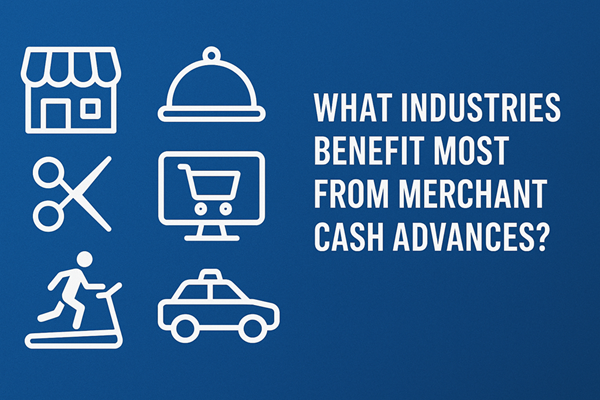Understanding Invoice Finance and Merchant Cash Advance Facilities
Running a successful business is often dependent on timely access to flexible funding to support everyday operations and growth. Two popular financing options for smaller UK businesses are invoice finance and merchant cash advances, which can be great for combatting common cash flow issues.

Invoice Finance: The Basics
Invoice finance, also known as invoice factoring or discounting, allows businesses to access cash tied up in unpaid invoices. It can be particularly beneficial for businesses with a strong invoice book and a steady stream of customers.
Here is how it works:
- Invoice Submission: You provide goods or services to your customers and issue invoices as usual.
- Invoice Verification: You submit the invoices to an invoice finance provider for verification. They typically advance you up to 85-90% of the invoice value within 24 hours.
- Customer Payment: Your customers make payments directly to the finance provider, who deducts their fees and interest (1% to 5%) before transferring the remaining amount to your business.
- Final Settlement: Once your customers settle their invoices, the finance provider releases the remaining balance, minus their fees, to you.
Pros of Invoice Finance:
- Immediate access to cash flow.
- Helps bridge gaps in working capital.
- Suitable for businesses with a stable customer base.
- No need to wait for customers to pay invoices.
Cons of Invoice Finance:
- Costs can be high when compared to other similar facilities.
- Customer relationships may be affected if they are aware of the arrangement.
- Not suitable for businesses with irregular invoicing.

Merchant Cash Advance: Understanding MCAs
A merchant cash advance allows a business to access a lump sum of cash in exchange for a percentage of its daily credit card sales. This method is particularly beneficial for retail and hospitality businesses with high credit card sales volumes.
An overview of a typical MCA in practice:
- Application: You apply for an MCA, providing details of your business’s credit card sales history.
- Approval: If approved, you receive a lump sum, usually based on your average monthly card sales.
- Daily Repayments: Instead of fixed monthly payments, you repay the advance daily as a percentage of your daily credit card sales.
Pros of Merchant Cash Advance:
- Quick and easy access to funds.
- Repayment is tied to actual card sales, making it flexible and affordable.
- No fixed monthly payments.
Cons of Merchant Cash Advance:
- Inaccessible for cash-only businesses
- Not suitable for businesses with low credit card sales.

Deciding Which is Right for Your Business
Ensuring you make the right choice for your business means selecting a product that aligns with your goals, your budget and your exact requirements at that time.
Key considerations prior to approaching a lender include:
- Business Type: Think about your industry and how your customers pay. If you have a steady stream of invoices, invoice finance may be more suitable. If your customers primarily use debit or credit cards, MCA may be a better fit.
- Cost Analysis: Compare the costs of both options, including fees, interest rates and factor rates. Calculate the total cost of each financing method to determine which is more cost-effective.
- Cash Flow Needs: Assess your business’s cash flow needs. If you need a lump sum of cash for a specific purpose, an MCA might be more appropriate. If you require ongoing working capital, invoice finance can provide a consistent cash flow.
- Customer Relationships: Consider how your customers will perceive your financing choice. Invoice finance is more discreet as it doesn’t involve customer payments directly. On the other hand, an MCA is more transparent to customers.
- Repayment Flexibility: Think about how flexible you need the repayment terms to be. MCA offers daily repayments tied to sales, while invoice finance provides more predictable monthly payments.
Before submitting an application for either facility, consulting with an independent broker is highly recommended. The input and representation of a skilled broker will help you make a confident and informed decision, while also ensuring you get the best possible deal from a top-rated lender.






